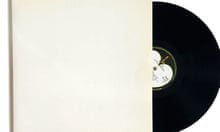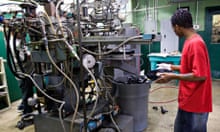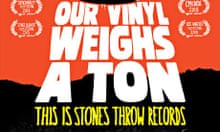The appeal of vinyl is a mysterious thing. Even when you talk to people who make records, who know how the sound gets from the groove to the stylus into the amp and out through the speakers, it's still kind of magical, in some weird way. The idea of analog, even with its crackle and pops, the idea of this sound being pulled off this rotating disc through these other elements, I think there's integrity to that, as opposed to this mystifying sequence of zeroes and ones that make that digital sound. I have no idea how the hell that works. It seems detached, inhuman.
At some point in the last two years, I got a renewed interest in playing records. I'd had turntables before, and I had a box of records that I'd been carting around since high school. I always knew in the back of my head that records had more integrity than digital music. I went to interview Jack White at his place in Nashville, and he's a real analog guy. He had these Mackintosh tube amps, and I got hung up on the idea of getting a tube amp, but the ones Jack had were $15,000. There was no way I could spend that kind of money on stereo equipment and enjoy it; I'd always be thinking, does this sound like $15,000? I don't think so.
I've got around 2,000 records now, and I play music constantly. I've been through some hard relationships lately and music seems to fill the gap. Now I can listen to all these different bands, from all the different periods in my life, bands I've never heard of, new bands, old bands ... If you sit down with good equipment and listen to vinyl, it's pretty astounding. I listen to albums I've had my whole life and I've never heard them quite like this.
The first time I really noticed it was with Lou Reed's Transformer, which is produced by David Bowie. We all know that record. That's a pretty important record. So when I played that on vinyl through the tubes, I heard the depth and the separation, and how the production resonates and how he spaced out the sounds are. It was like I'd never heard it before. That's true of a lot of Bowie's records in general, especially the early ones.
That happened with Creedence Clearwater too. I had all these original Creedence albums, which sound spectacular. They are thick, weighty records on the Fantasy label. The production is so succinct and the separation of things is so beautiful. There's no weird compression or muddy sound at all. I talked to John Fogerty about what it is that makes it so long-lasting, and what he thought about when he was producing records. And he said, 'I just thought about how it would come out of a speaker in a car. If someone's singing, you put that up front. If someone's playing guitar, you put that up front.' There's this really practical-minded approach to producing music and it's so solid.





Comments (…)
Sign in or create your Guardian account to join the discussion